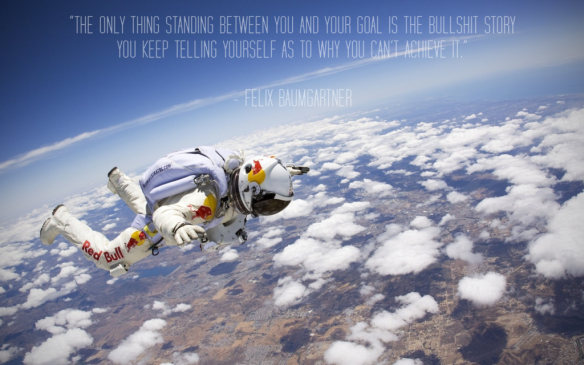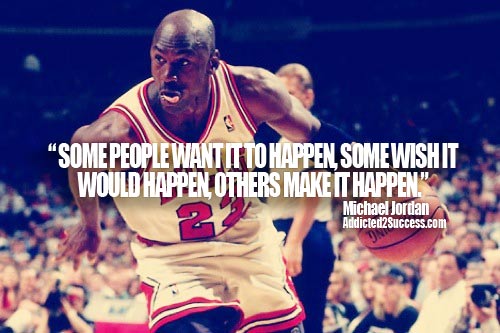What drives you…I mean really drives you? The factors, context and variables may differ, but you know what I speak of. That deep, almost animalistic need to succeed buried deep within, that pushes you to better yourself and striving to achieve your goal. This state is otherwise known as motivation, which can be derived from a number of facets and can be contextualized intrinsically or extrinsically. 
From a student’s perspective the idea of doing an assignment sometimes does fill me with dread, so I may throw on my headphones to get motivated! I’m sure we’ve all had one of those occasions where you feel you need music to fuel you, drive you and provide you with new found energy and inspiration giving you that push and desire to complete your goal. Furthermore Blood et al (2001) found when participants heard music that was euphoric and produced pleasant emotional responses (‘shivers down the spine’ and ‘hair standing up’); changes in neural mechanisms within the brain, were found to increase cerebral blood flow to the ventral medial prefrontal cortex, amygdala and orbitofronal cortex. Also mentioned in the study was that these brain regions also become activated with pleasurable stimuli such as sex, thirst and food, which have been considered as necessities to be fulfilled in both the physiological and basic needs of Maslow’s hierarchy of needs (1943). Thus music can be highly influential and motivational to an individual giving encouragement to complete the task.
Dependent on the goal and objective of the individual, motivation can be utilised to overcome and supersede any current doubts to achieve their ambition. The concept of mind-set also ties in with motivation as Gollwitze and Kinney (1989) suggested that people who are contemplating a decision create a mind-set in order to provide possible action outcomes expectancies, in comparison to those who create an implemental mind-set to encourage an illusionary optimism. Furthermore, Taylor et al (1995) found that people typically employ realistic thinking when assessing goals and obtain more favorable and positive thinking when wanting to apply them to those goals.
So in the consumer world, motivation can be used as a distinct and powerful tool in many ways, such as increasing brand awareness and influencing the purchasing of merchandise or services by the consumer. An example of marketing motivation is increasing consumer’s physical fitness and health, which is a massive sector that can be targeted in numerous ways. Mediums of portraying motivation to become fitter and healthier could be through social media like Facebook. More specifically advertising promotions with anything and everything in-between gym memberships to healthy drinks etc can be used. Ryan and Deci (2000) suggested that relatedness, competence and autonomy are 3 innate psychological needs that once fulfilled significantly increase and strengthen self-motivation. Thus, if applied to the example above, companies can tailor their marketing to increase self-motivation of consumers to become healthier and fitter through e.g. using their equipment or consuming their products.
In relation to motivational advertisements some of the most recent ones I’ve seen and loved, were from Nike, which I have found really inspiring and uplifting to do things, even writing this very blog! The first of which (below) shows a number of athletes with the famous actor Bradley Cooper narrating, explaining how people have abilities, but the key is to always push yourself and explore the possibilities.
This next advertisement I found incredibly profound and moving due to the powerful narrating, as it features a wide range of scenarios and examples of people using motivation to achieve their goal. The video is one which made me want to watch it to the end, due to the inspiration and ‘get up and go!’ attitude I suddenly developed. I wonder if it will have the same affect on you…
From these adverts I found Nike are not only inspiring people through highly motivational commercials, but through using motivation as the key driver, they are also promoting and increasing brand awareness and reputability. Thus, we all have tasks, objectives, ambitions etc, but where we can struggle sometimes is the lack of motivation. Whether motivation is obtained through music or speeches in commercials, it can have a profound affect on the target market which companies can capitalize on, potentially influencing your psychology and behaviour to hold them in a more positive regard.
References:
Blood, A. J., & Zatorre, R. J. (2001). Intensely pleasurable responses to music correlate with activity in brain regions implicated in reward and emotion. Proceedings of the National Academy of Sciences, 98(20), 11818-11823.
Gollwitzer, P. M., & Kinney, R. F. (1989). Effects of deliberative and implemental mind-sets on illusion of control. Journal of Personality and Social Psychology, 56(4), 531.
Maslow, A., H. (1943). A Theory of Human Motivation. Psychological Review, 50(4), 370.
Ryan, R. M., & Deci, E. L. (2000). Self-determination theory and the facilitation of intrinsic motivation, social development, and well-being. American psychologist, 55(1), 68.
Taylor, S. E., & Gollwitzer, P. M. (1995). Effects of mindset on positive illusions. Journal of personality and social psychology, 69(2), 213.


A really motivating blog! I need to set that last video as my alarm clock sound. Maybe that will force me out of bed!
If you’re interested in motivation, I’d really, really, really suggest reading ‘Flow: The Psychology of Happiness’ by Csikszentmihalyi (see: http://www.amazon.co.uk/Flow-Psychology-Happiness-Classic-Achieve/dp/0712657592/ref=sr_1_1?ie=UTF8&qid=1386558069&sr=8-1&keywords=flow). It’s all about Flow, a positive psychology concept which is all about immersion, focus and enjoyment of an activity – which is intrinsically rewarding and motivating.
More than that, he discusses how you can engineer situations to stimulate flow. If i remember correctly, the main conditions of flow are:
– Reasonable goals which have measurable progress (i.e., unambiguous)
– Good feedback. Can’t stress this one enough.
– Balance between PERCEIVED skills and challenges.
If you don’t want to buy the book, I think most of his journals are available with University Library Access. Worth a read. But if you want a taste, check out his TED talk: http://www.ted.com/talks/mihaly_csikszentmihalyi_on_flow.html.
A very interesting thing about motivation is how it differs between cultures. Markus and Kitayama (1991) stated that in many Asian cultures, the concept of individuality is fundamentally about how individuals relate to each other. So, they want to live in harmony with others, fit in, and pay attention to others. Comparable, you have the American attitude to individuality which is all about being independent from others, paying attention to yourself, and express the attributes which are unique to you.
It isn’t hard to see how these different concepts of individuality bleeds into motivation. In the interdependent cultures, individuals are more likely to do well because it is expected of them by others; whereas in the independent cultures, individuals are more likely to do something that isn’t expected of them. Things that will make them stand out and be seen as better than the rest.
Two sayings which perfectly sum this up are the Japanese proverb “The nail that sticks out gets hammered down.” and the American proverb “If you want something done right, do it yourself.”
Reference
Markus, H. R. & Kitayama, S. (1991). Culture and the Self: Implications for Cognition, Emotion, and Motivation. Psychological Review, 98(2): 224-253.
I have to admit, i do love a good motivational advert. The type where you sit and watch it and think “I need to do something with my life”. And it does seem like Nike has perfected it down to a tee by as you say, being the key drive behind there brand. This essentially starts with there slogan; ‘Just Do It’ implies an impulsive drive of not even stopping to think about what you are planning to do, just do it anyway and not let anything stop you. A great example of this is there Nike Run range in which they made a series of collaborations with several well known celebrities such as the Ellie Goulding ‘Run’ video (http://www.youtube.com/watch?v=236C14UBvcU). This again uses an idea you touched upon by using inspirational music to make you want to get up and run a marathon, even if this isn’t yet possible. It creates a goal, and god knows I know i need motivation to do some cardio.
Really interesting blog post, as a student I can fully appreciate and relate with the need for motivation. I agree with you about the ‘Rise and Shine’ video, definitely a three minute motivator right there, I certainly wish I could remember why I have set my alarm for silly o’clock when I’m feeling on the more lazy side of life!
You mentioned motivation and music, I feel like this is an interesting topic, as I also find myself pretty dependent on listening to music when I am trying to do essays and other assignments. One study looked at listening to music in schools and at home, it was found that in a school environment listening to music was associated with motivation for learning and being more active (Boal-Palheiros & Hargreaves, 2001). I guess such research could be relative to when you listen to music whilst doing university work.
There has been further research related to motivation and music, a study on the ‘Mozart effect” (Thompson, Schellenberg & Husain, 2001). It was suggested that if participants listened to a pleasant energetic piece their performance on a spatial task was greater, also that their mood was improved. So perhaps my habit of listening to music whilst doing work may be beneficial.